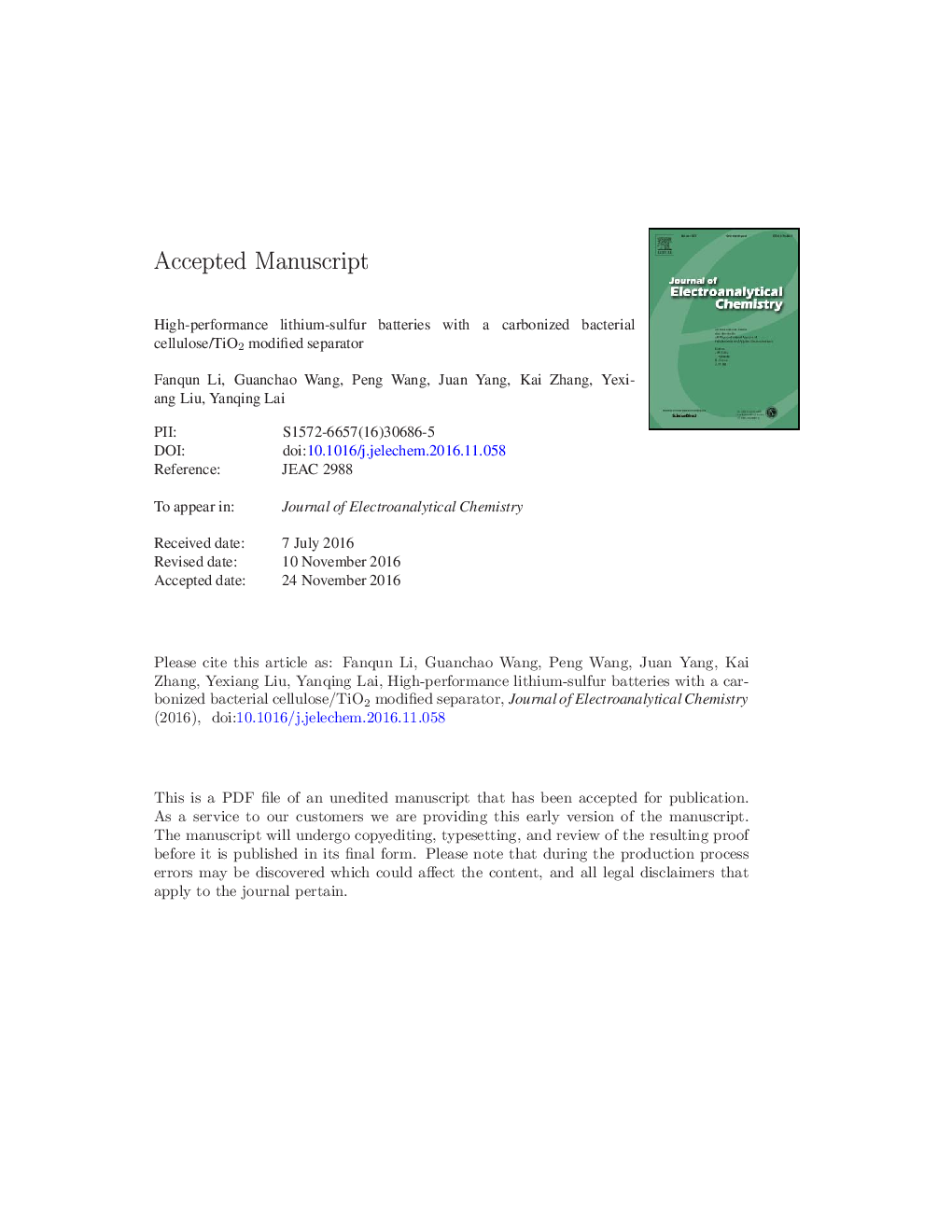| Article ID | Journal | Published Year | Pages | File Type |
|---|---|---|---|---|
| 4907997 | Journal of Electroanalytical Chemistry | 2017 | 31 Pages |
Abstract
Lithium-sulfur (LiS) batteries have been considering as a very promising energy storage system since their high theoretical specific capacity and energy density. Nevertheless, the practical commercialization of LiS batteries is hindered by their poor cycle stability and fast capacity fading. Herein, a carbonized bacterial cellulose/titania (CBC/TiO2) modified separator is designed to restrain the shuttle effect of LiS cells with its strong physical and chemical adsorption of polysulfides. Cells with CBC/TiO2 modified separator show an initial discharge capacity of 1314 mAh gâ 1 at 0.2C, and the capacity retention is 1048.5 mAh gâ 1 after 50 cycles. A discharge capacity of 475 mAh gâ 1 is obtained after 250 cycles at 2C. And during the rate test, LiS cells can deliver a discharge capacity of 537.1 mAh gâ 1 at 2C. The outstanding electrochemical performance of LiS cells with CBC/TiO2 modified separator shows a new approach for the application of LiS batteries.
Related Topics
Physical Sciences and Engineering
Chemical Engineering
Chemical Engineering (General)
Authors
Fanqun Li, Guanchao Wang, Peng Wang, Juan Yang, Kai Zhang, Yexiang Liu, Yanqing Lai,
